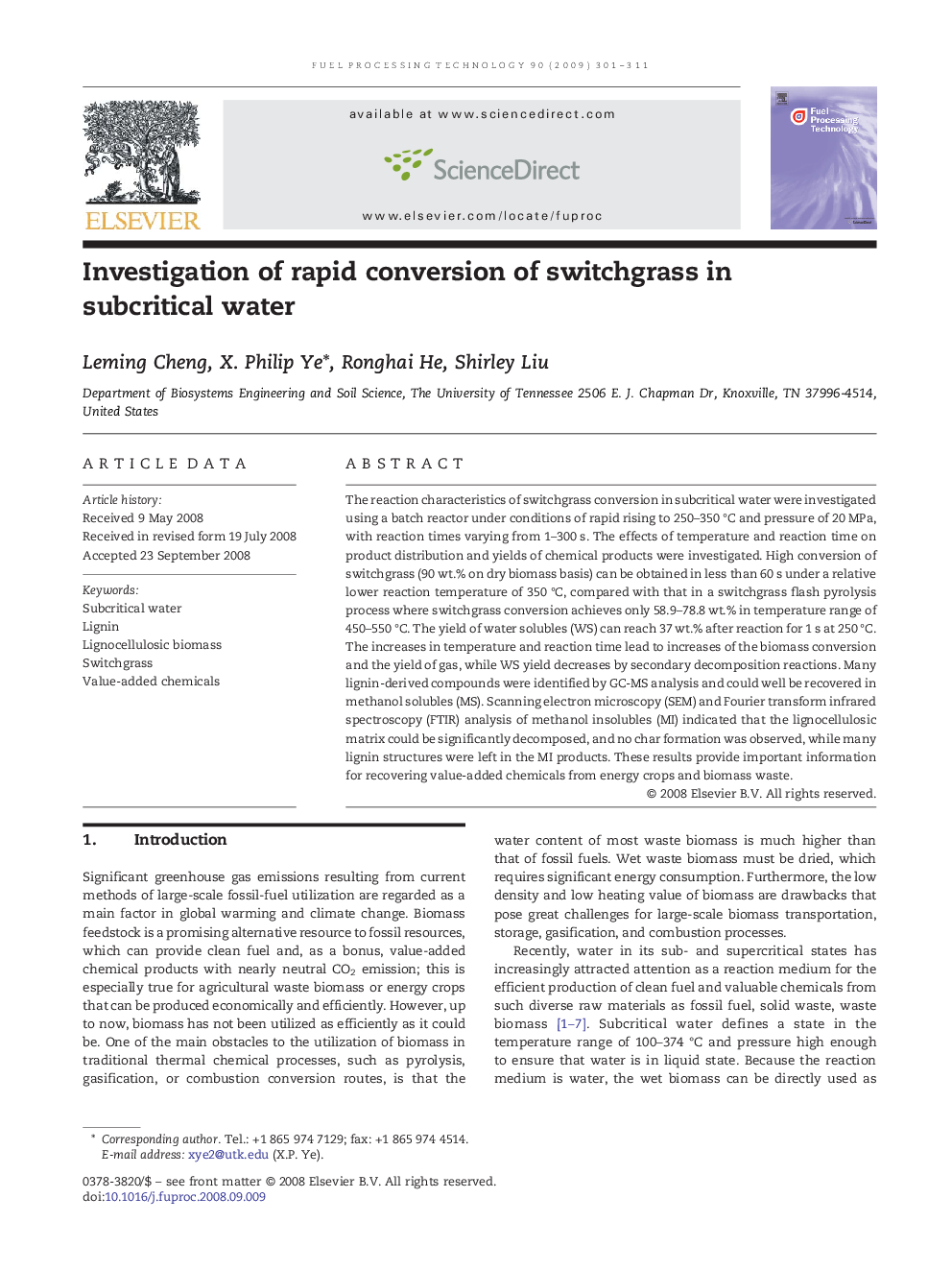| Article ID | Journal | Published Year | Pages | File Type |
|---|---|---|---|---|
| 211338 | Fuel Processing Technology | 2009 | 11 Pages |
The reaction characteristics of switchgrass conversion in subcritical water were investigated using a batch reactor under conditions of rapid rising to 250–350 °C and pressure of 20 MPa, with reaction times varying from 1–300 s. The effects of temperature and reaction time on product distribution and yields of chemical products were investigated. High conversion of switchgrass (90 wt.% on dry biomass basis) can be obtained in less than 60 s under a relative lower reaction temperature of 350 °C, compared with that in a switchgrass flash pyrolysis process where switchgrass conversion achieves only 58.9–78.8 wt.% in temperature range of 450–550 °C. The yield of water solubles (WS) can reach 37 wt.% after reaction for 1 s at 250 °C. The increases in temperature and reaction time lead to increases of the biomass conversion and the yield of gas, while WS yield decreases by secondary decomposition reactions. Many lignin-derived compounds were identified by GC-MS analysis and could well be recovered in methanol solubles (MS). Scanning electron microscopy (SEM) and Fourier transform infrared spectroscopy (FTIR) analysis of methanol insolubles (MI) indicated that the lignocellulosic matrix could be significantly decomposed, and no char formation was observed, while many lignin structures were left in the MI products. These results provide important information for recovering value-added chemicals from energy crops and biomass waste.
